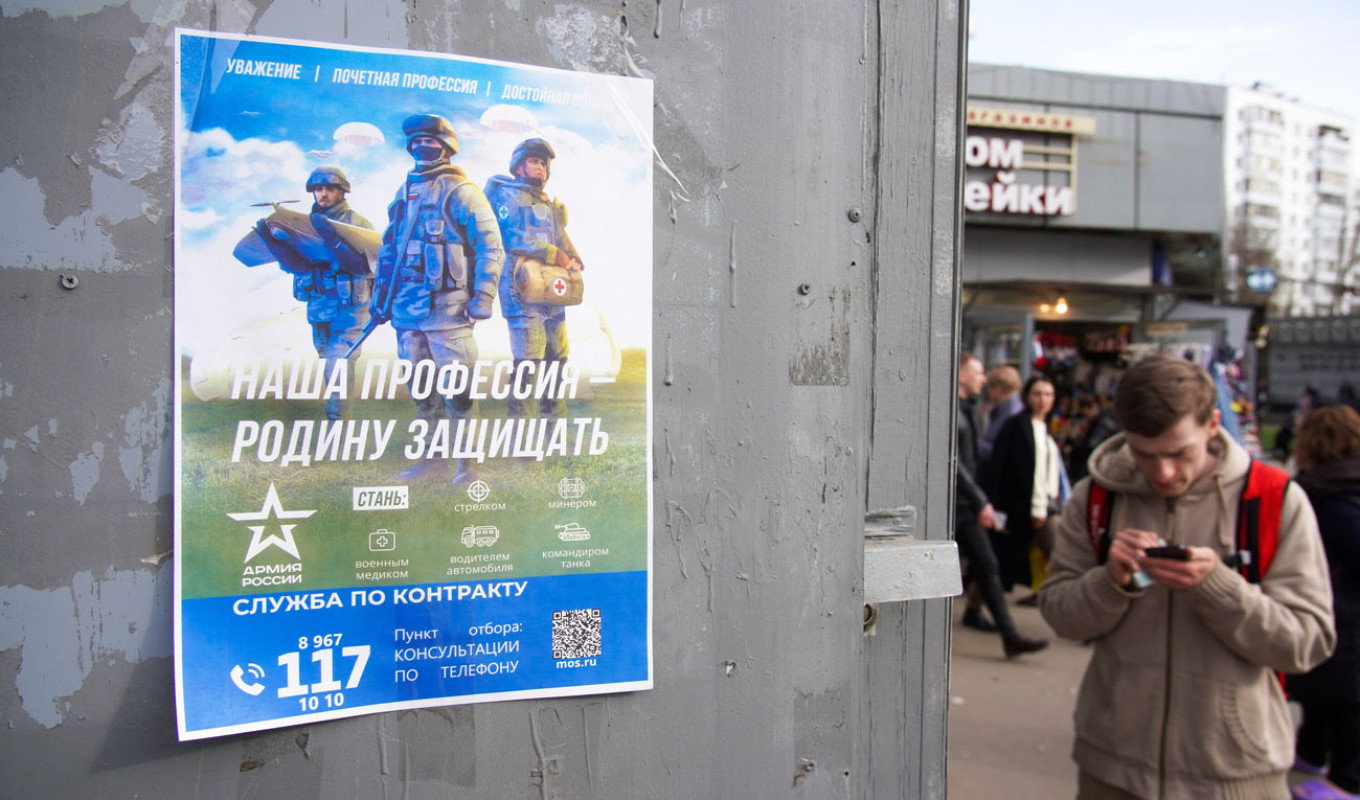It took the Russian parliament just twenty-three minutes to vote on the second and third readings of a controversial bill tightening military draft rules that many observers believe will pave the way for a second wave of mobilization.
In a rare show of protest, several lawmakers complained they were only shown the full text of the 55-page law an hour before the session began.
“We simply had no opportunity to examine the bill,” Communist Party deputy Nina Ostanina said ahead of the vote.
The speed and stealth with which this bill — that will enact sweeping changes to the country’s military draft procedures — was rushed through the State Duma earlier this week was unusual even by the less-than-transparent standards of Russia’s legislative process.
While Kremlin spokesperson Dmitry Peskov claimed Wednesday that the bill was needed to make the country’s military call-up system more “modern, efficient and convenient,” others have linked it to Russia’s need for recruits following its lackluster spring offensive in eastern Ukraine and the imminent prospect of Kyiv’s own counter-offensive.
One source told The Moscow Times that there was such a rush to get the legislation through parliament that procedural rules were broken.
“Technically there was a slight violation of the regulations,” a State Duma deputy who requested anonymity told The Moscow Times.
“But the times are such that no one will argue with the Duma leadership.”
He declined to say exactly what the violations were.
Ostanina and the two other deputies who complained about the speed of the bill’s passage did not respond to a request for comment from The Moscow Times.

There were just 20 hours between the public announcement of the major changes on Monday evening and their unanimous approval by deputies. Instead of being added to a new piece of legislation, they were added as amendments to a bill originally submitted to the State Duma in 2018, but which had only passed its first reading.
Russia’s upper house, the Federation Council, waved the bill through 24 hours later.
One Communist Party deputy wrote on Telegram that they found out about the legislation ahead of the vote from media reports.
To enter force, it now only requires the signature of President Vladimir Putin.
“This is the State Duma in full “rubber stamping” mode,” Ben Noble, a Russian politics expert at University College London, told The Moscow Times.
“The passage of this bill bears all the hallmarks of an initiative that is of high importance to the executive.”
Under the law, men eligible for military service will be required to show up to recruitment offices after receiving an online summons — issued via either a new digital database, the postal service or the online state portal Gosuslugi. Previously, military summons had to be delivered in person.
In addition, the law also blocks anyone eligible for military service who has received a summons from leaving the country.
Those who ignore their call-up papers will face legal restrictions including a driving ban, and being disqualified from taking out loans and selling or buying real estate.
As recently as last week, top Russian officials, including the head of the State Duma’s Defense Committee Andrei Kartapolov, denied there were any plans for such radical changes to military draft rules.
Since the parliament’s final approval of the law on Wednesday, the measure has received relatively little coverage in Russian state-controlled media.
Reports about the law on state-run media have tended to focus on reassuring audiences, stressing that the changes are simply about modernizing an outdated system and that they do not presage a new round of mobilization.
In a radio interview with talk show host and Kremlin propagandist Vladimir Solovyov, Kartapolov admitted the law applied to all military conscripts — but stressed “there is no mobilization.”
An article published alongside the interview was titled: “Why the new rules on issuing military summons are in no way linked to mobilization.”
The secrecy surrounding the bill and the nature of the media coverage were an attempt to minimize negative publicity that could dent Putin’s popularity, a longtime acquaintance of the president and a source in the Kremlin, who both requested anonymity, told The Moscow Times.
“There are constant public opinion polls … and [Kremlin officials] have decided from now on to act in a hybrid mode,” the longtime acquaintance of Putin told The Moscow Times.
“As quietly as possible and with as little publicity as possible.”